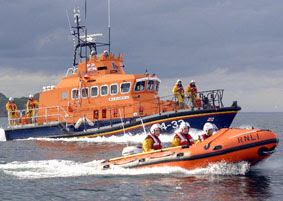
Last week I came across an article in "The New York Times" that made me rub my eyes in disbelief. There it stood, black on white, that a company in New York has begun importing Irish dirt and selling it for a few dollars per kilogram, shipped to your doorstep.
On the company's website (www.officialirishdirt.com) it is written that the company has shipped $2 million worth of soil so far, more to come.
Most Irish-Americans use this soil for filling in their graves and spreading it under their homes.
My first thought after reading the article was what had happened with the "good, old times" when expatriats sung traditional songs, took part in flamboyant festivals, or wore traditional dresses to express their love to their home land.
Buying Irish soil seemes to me like the daftest thing ever, but at least you don't harm anyone by doing it.






 Young wealthy women are being murdered on the streets of London, which are heavy with dense fog (contributes ot the eriee atmosphere), one after another. The police finds their bodies in dimly lit side streets. They have all been killed by a stocking around their throats and another in their mouths. Sherlock Holmes, who is fighting at that time against his opium addiction, decides to assist the police. Soon enough, they realise that the murderer is a sexual sadist, who derives pleasure from undressing his victims and kissing their feet before killing them with their own stockings.
Young wealthy women are being murdered on the streets of London, which are heavy with dense fog (contributes ot the eriee atmosphere), one after another. The police finds their bodies in dimly lit side streets. They have all been killed by a stocking around their throats and another in their mouths. Sherlock Holmes, who is fighting at that time against his opium addiction, decides to assist the police. Soon enough, they realise that the murderer is a sexual sadist, who derives pleasure from undressing his victims and kissing their feet before killing them with their own stockings.








































